Can You Work When Your On Social Security Disability?
Key Takeaway:
- It is possible to work while receiving Social Security Disability benefits, but there are certain eligibility requirements that must be met.
- These requirements include a limit on the amount of earnings considered “substantial gainful activity”, a trial work period, and an extended period of eligibility.
- If you are working and receiving SSD benefits, it is important to report your work and earnings to the Social Security Administration, as failure to do so could result in reductions or suspension of your benefits.
Are you on social security disability and concerned about returning to work? You may be able to work while continuing to receive social security disability benefits. This article explains how.
Can You Work When You’re on Social Security Disability?
Can You Work and Receive Social Security Disability Benefits?
It is possible to work and receive social security disability benefits. In fact, the Social Security Administration (SSA) encourages people to work if they are able to, as it may improve their financial situation and overall well-being. However, there are some eligibility criteria and rules that must be followed.
It is important to understand that if you work and earn above a certain threshold, your eligibility for social security disability benefits may be affected. The SSA has a program called the Ticket to Work program that allows individuals to test their ability to work while still receiving benefits. The program provides resources and support to help individuals transition to full-time employment and financial self-sufficiency.
It is also important to report any changes in income to the SSA, as failure to do so may result in overpayments and other penalties. It is best to consult with a social security disability attorney or a representative from the SSA to fully understand the eligibility requirements and rules related to working while receiving benefits.
According to a report by the National Bureau of Economic Research, people with disabilities who work have better mental health outcomes and report higher levels of life satisfaction compared to those who do not work.
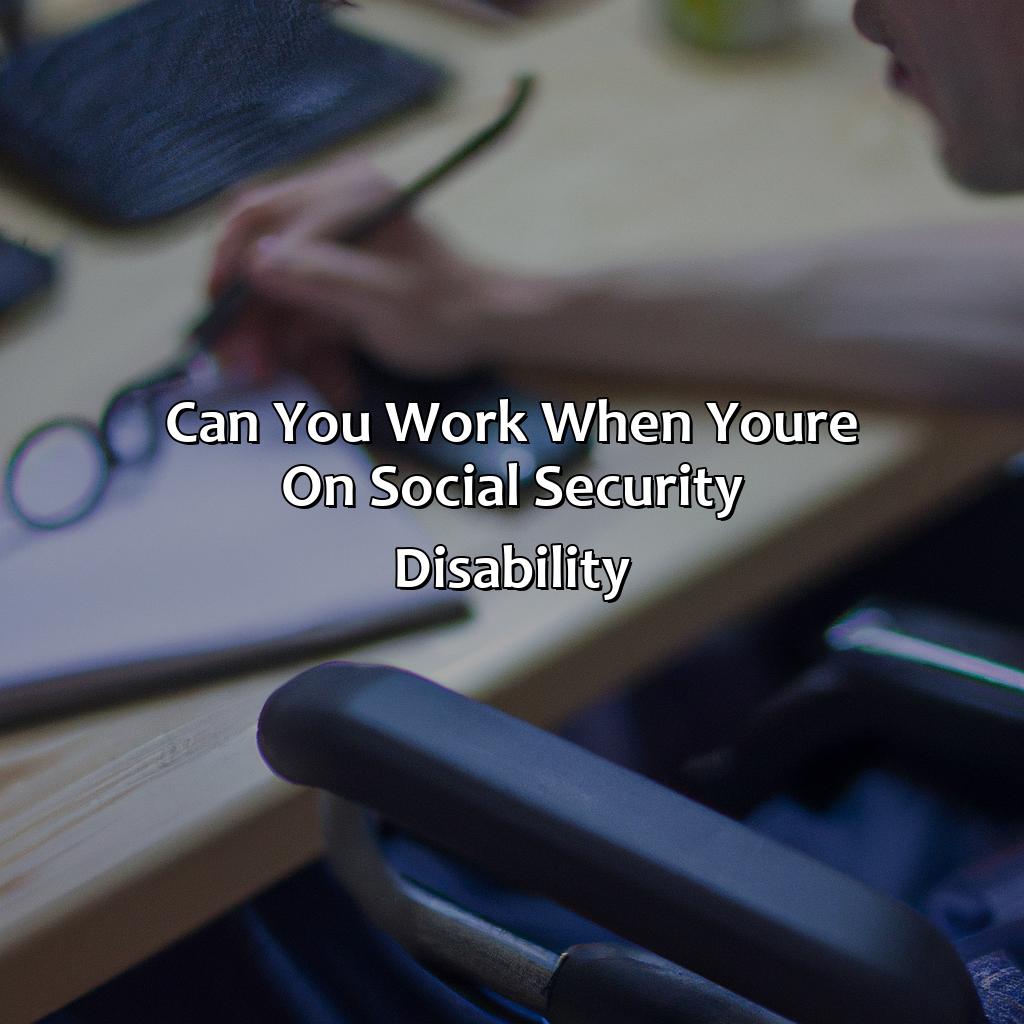
Image credits: retiregenz.com by James Washington
Working While Receiving Social Security Disability Benefits
Receiving Social Security Disability Benefits and Working: What You Need to Know
Is it possible to work while receiving Social Security Disability Benefits? Yes, it is allowed, but there are some rules you need to follow. As an SSDI beneficiary, you need to inform the Social Security Administration of your work status and earnings. Failure to do so could lead to reduced benefits or suspension of your benefits.
Additionally, there are earning limits that you need to be aware of. For 2021, the substantial gainful activity (SGA) threshold is $1,310 per month for non-blind individuals and $2,190 per month for blind individuals. If you are making more than these amounts, your benefits may be reduced or discontinued.
It is important to note that there are programs, such as the Ticket to Work program, that are designed to help SSDI beneficiaries return to work. These programs offer support, vocational rehabilitation, and other services to help recipients achieve their goals.
According to a report by the Center on Budget and Policy Priorities, Social Security Disability Insurance (SSDI) is a vital source of income for millions of Americans with disabilities. In 2018, almost 9 million people with disabilities received SSDI benefits.
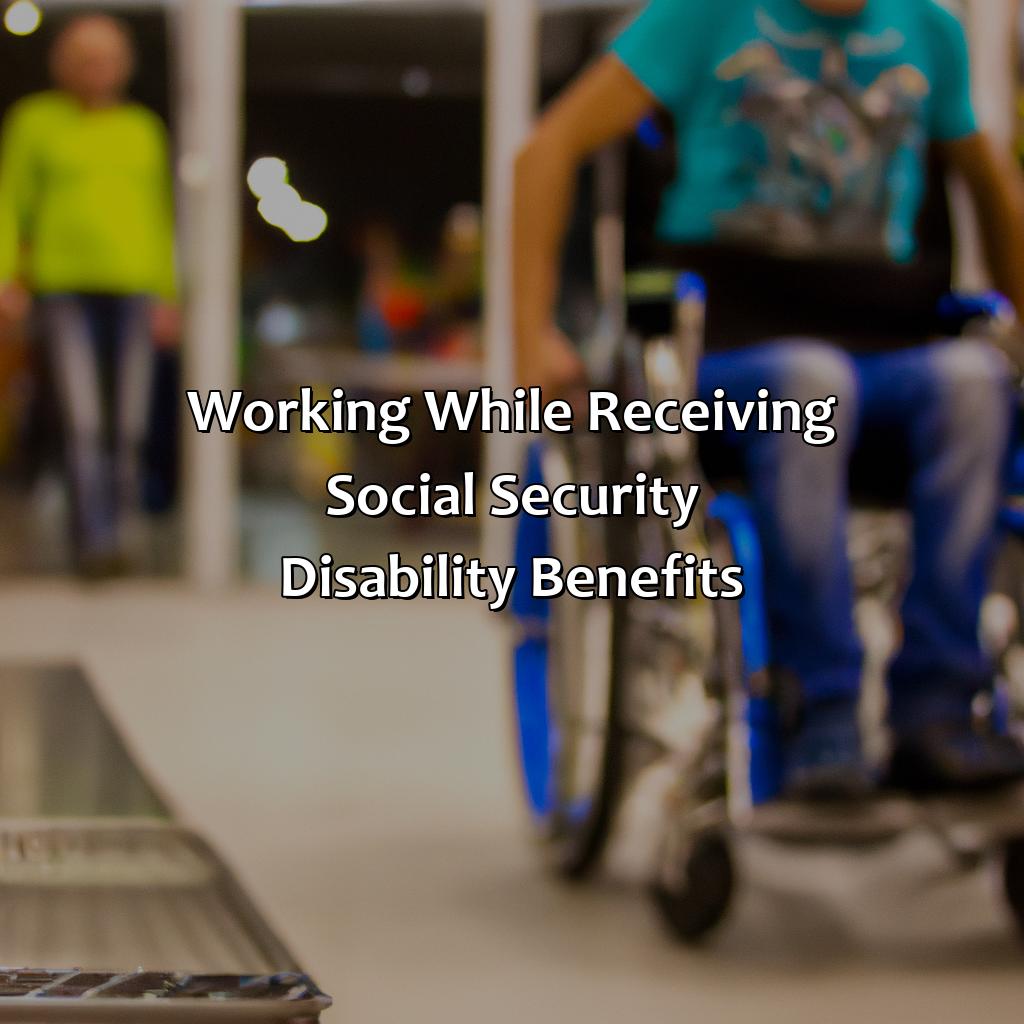
Image credits: retiregenz.com by Adam Arnold
Eligibility Requirements for Working While on Social Security Disability
Working While on Social Security Disability: Eligibility Requirements
You can work while on Social Security Disability, provided you meet certain eligibility requirements. To continue receiving disability benefits, you must not earn more than the substantial gainful activity (SGA) limit, which in 2021 is $1,310 per month. Additionally, you must report any work you do to the Social Security Administration (SSA) and comply with their work reporting rules.
If you are able to work and earn more than the SGA limit, the SSA will typically conduct a review of your case to determine if you still meet their definition of disability. However, there are certain programs and work incentives available to help you ease back into the workforce, such as the Ticket to Work Program and the Plan for Achieving Self-Support (PASS).
It is important to understand that the SSA defines disability as the inability to engage in substantial gainful activity (SGA) due to a medical condition that has lasted or is expected to last at least 12 months. Therefore, any work you do must not interfere with your ability to perform the tasks of your disability or be seen as an indication that you are no longer disabled.
A woman who previously received disability benefits due to a severe back injury was able to return to work part-time under the Ticket to Work program. The program allowed her to keep her benefits while she gained more confidence and skills to eventually transition to full-time work.
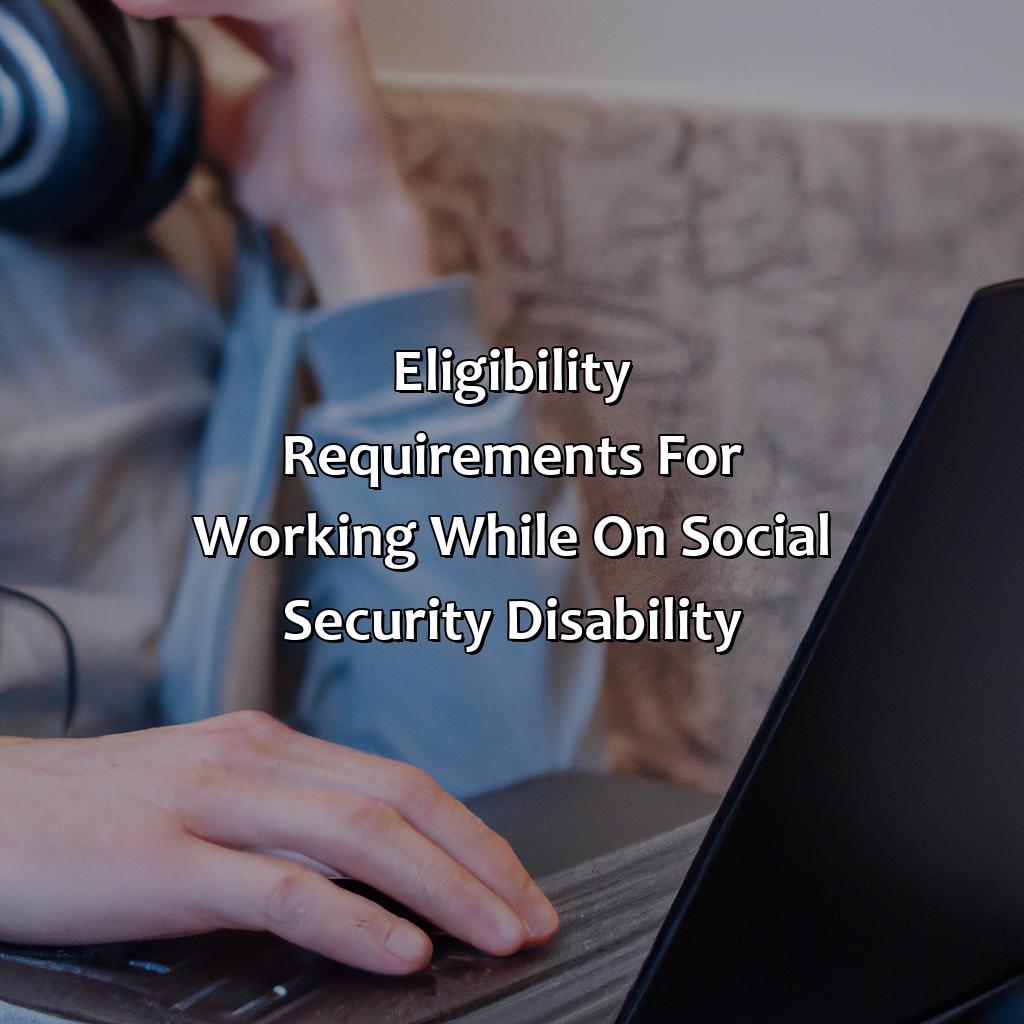
Image credits: retiregenz.com by Yuval Arnold
Reporting Work and Earnings to Social Security Administration
As a recipient of Social Security Disability benefits, it is important to keep the Social Security Administration (SSA) informed of any work and earnings. This helps determine if the work is substantial enough to end your disability benefits eligibility.
To report work and earnings to the SSA, provide the date you began working, job title, and type of work performed. Also, provide gross earnings, how frequently you’re paid, and how many hours you’re working per day.
Furthermore, you must report any changes to your work hours or earnings. The SSA allows a trial work period where you can test your ability to work and still receive benefits. However, your monthly earnings cannot exceed a certain amount to maintain eligibility.
It is important to note that failing to report work and earnings may result in overpayment of benefits, and as a result, you may have to repay the SSA.
In a true story, a man who received disability benefits failed to report his employment and earnings, resulting in overpayment of benefits. The man was required to repay the SSA, resulting in financial difficulties.
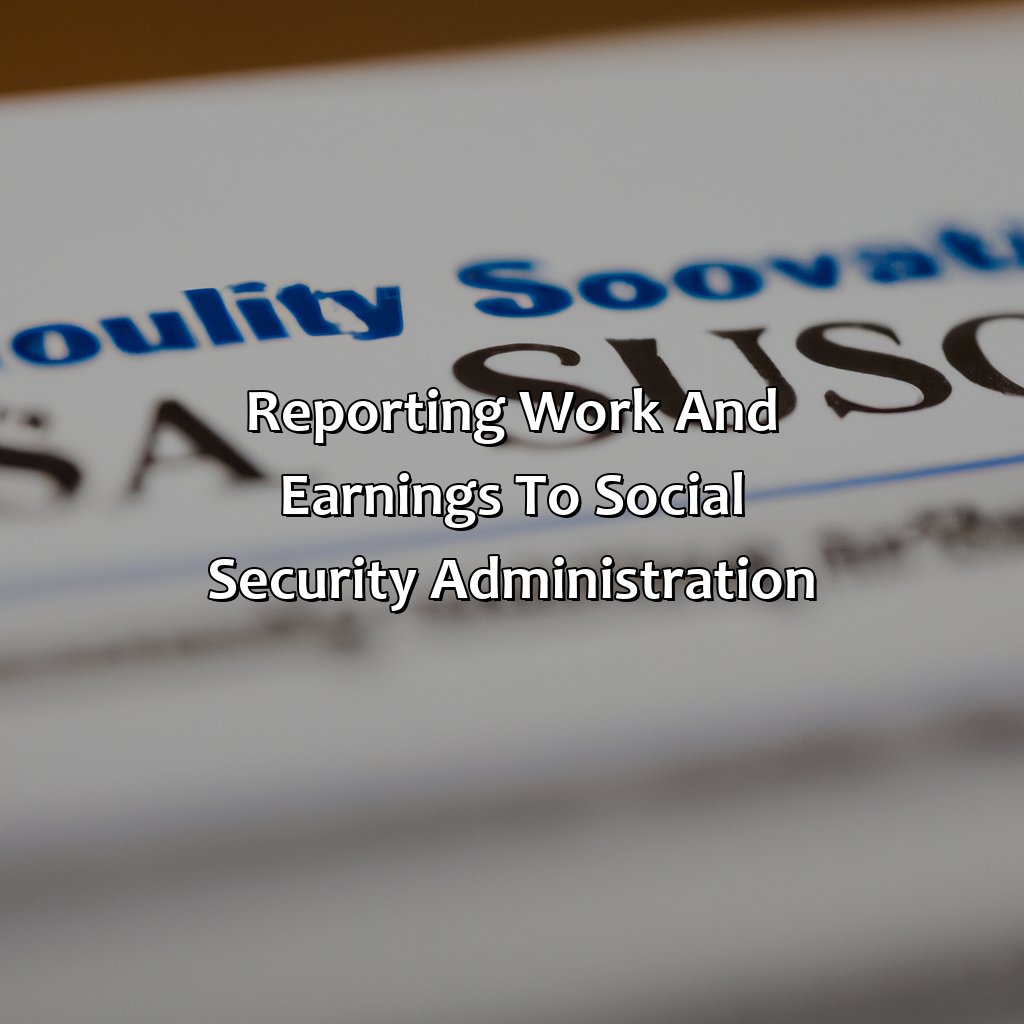
Image credits: retiregenz.com by Adam Washington
Impact of Working on Social Security Disability Benefits
Working while receiving Social Security Disability Benefits: What you should know
Social Security Disability Benefits are meant to provide assistance to disabled individuals who are unable to work and earn a regular income. However, many disabled individuals still prefer to work despite their disability. It is important to understand how earning an income can affect their disability benefits.
If you are receiving Social Security Disability Benefits, you can still work as long as you are not earning more than the substantial gainful activity (SGA) limit, which for 2021 is $1,310 per month. If you earn more than this limit, your benefits may be reduced.
It is also important to report your income to the Social Security Administration (SSA) as failure to do so could lead to overpayments and penalties. The SSA offers various programs such as the Ticket to Work Program and other employment support services to encourage disabled individuals to work.
According to the National Disability Institute, around 37% of working-age individuals with disabilities are employed compared to 77% for those without a disability. This highlights the importance of promoting employment opportunities for disabled individuals.
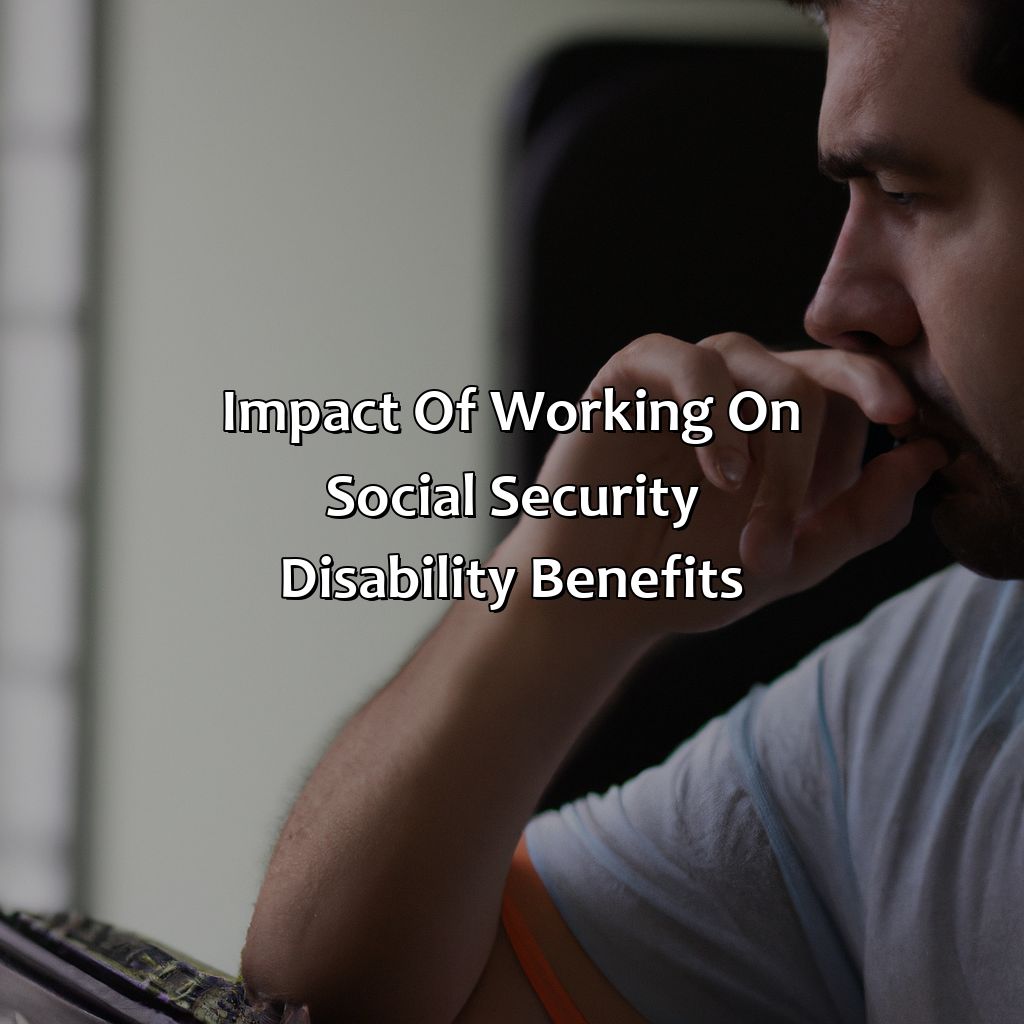
Image credits: retiregenz.com by Harry Arnold
Five Facts About Working While on Social Security Disability:
You can work while receiving Social Security Disability benefits as long as your earnings do not exceed a certain amount each month. (Source: Social Security Administration)
Social Security has several programs, such as Ticket to Work and Plan for Achieving Self-Support (PASS), to help individuals on disability transition to working and becoming financially independent. (Source: TurboTax)
If you are able to work and earn substantial income, you may lose your eligibility for Social Security Disability benefits. (Source: Nolo)
Social Security also offers incentives for employers who hire individuals with disabilities, such as the Work Opportunity Tax Credit (WOTC). (Source: Social Security Administration)
Social Security Disability recipients who work and pay into the program may be eligible for higher retirement benefits later in life. (Source: AARP)
FAQs about Can You Work When Your On Social Security Disability?
Can you work while receiving Social Security disability benefits?
Yes, you can work while receiving Social Security disability benefits, but there are certain limitations. Social Security has programs in place that allow you to test your ability to work without losing your benefits.
What are the programs that allow me to work while on Social Security disability?
The two programs that allow you to test your ability to work while on Social Security disability are Ticket to Work and the Trial Work Period.
What is the Ticket to Work program?
The Ticket to Work program is a free and voluntary program that can help you go to work, get a good job that may lead to a career, and become financially independent, all while you keep your Medicare or Medicaid benefits.
What is the Trial Work Period?
The Trial Work Period allows you to test your ability to work for at least nine months, while still receiving full Social Security disability benefits, regardless of how much you earn.
What happens after the Trial Work Period ends?
After the nine-month Trial Work Period, you enter the Extended Period of Eligibility. During this period, you will continue to receive benefits for any month in which your earnings do not exceed the substantial gainful activity (SGA) level. The SGA level for 2019 is $1,220 per month for non-blind individuals and $2,040 per month for blind individuals.
What should I know before I start working while receiving Social Security disability benefits?
You should consult with a Social Security representative to understand the programs available and how working will impact your benefits. It is also important to keep a record of your earnings and report them to Social Security on a regular basis to ensure that your benefits are adjusted accordingly.
 Checkout this IRS Loophole
Checkout this IRS Loophole 
